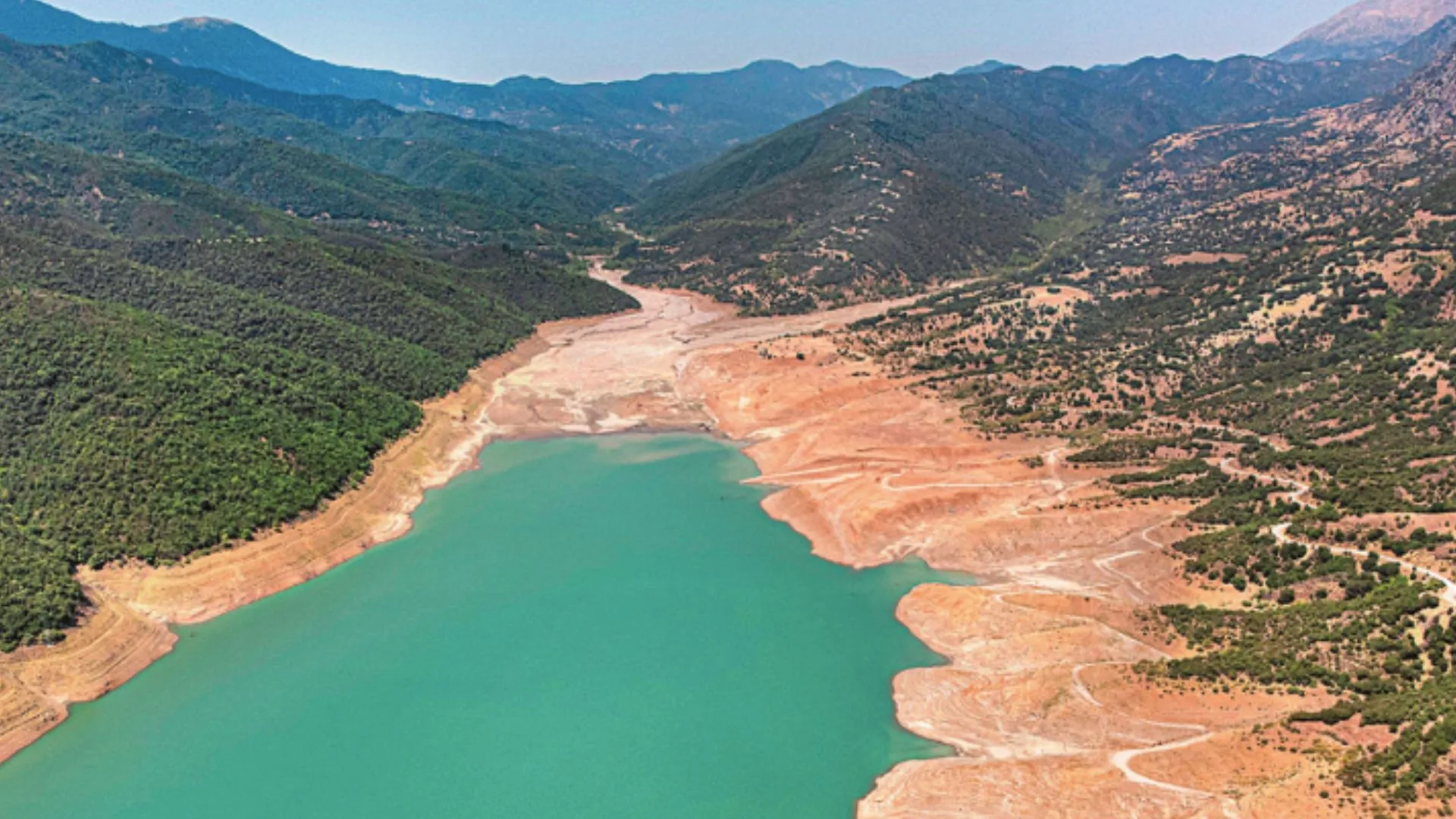Greece has unveiled a €2.5 billion national plan to confront growing water scarcity and safeguard supplies for the coming decades, amid warnings that Athens could face drought conditions for the first time in 30 years.
The plan was announced by Prime Minister Kyriakos Mitsotakis and Environment and Energy Minister Stavros Papastavrou at the Athens Water Supply and Sewerage Company’s (EYDAP) 100th anniversary celebration.
Both leaders stressed that water will remain a public good and retain its reputation as among Europe’s highest quality.
At the heart of the initiative is a major river diversion project, redirecting part of the Krikeliotis and Karpenisiotis rivers into the Evinos reservoir, which provides water to the Greek capital. Scheduled for completion by 2029, it aims to secure Attica’s water supply for the next 30 years.
Papastavrou said the investment responds to worsening conditions caused by climate change, as Greece’s water reserves have reached near-historic lows.
The project will be supported by new wells in Mavrosouvala, Ymittos and Boeotian Kifisos, capable of supplying an additional 150 million cubic metres of water per year.
Two further medium-term projects are under consideration: a pipeline linking the external water system to desalination facilities, and a new desalination plant with a capacity of up to 87.5 million cubic metres annually.
The government also intends to expand the responsibilities of EYDAP and EYATH to include irrigation and to consolidate Greece’s 750 local water providers into a more efficient network.
At the event, Mitsotakis warned: “Attica faces a very big problem in terms of water supply if no drastic measures are taken. Hope is not a strategy and we have to be prepared for the worst-case scenario.”
He added that the river diversion will enable 200 million cubic metres of water to reach the reservoir “by natural flow, without pumping stations.”
“This project will ensure that for the next thirty years Attica will not face a water supply problem,” he said, recalling “the water supply crisis of the 1990s, which must never be repeated.”
